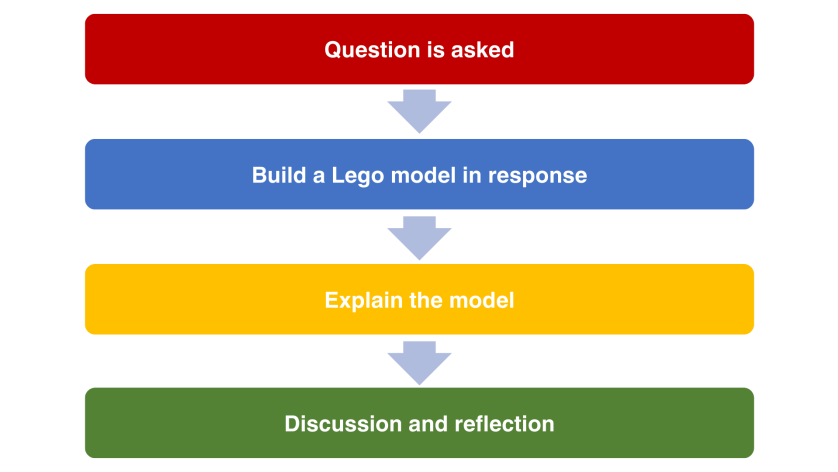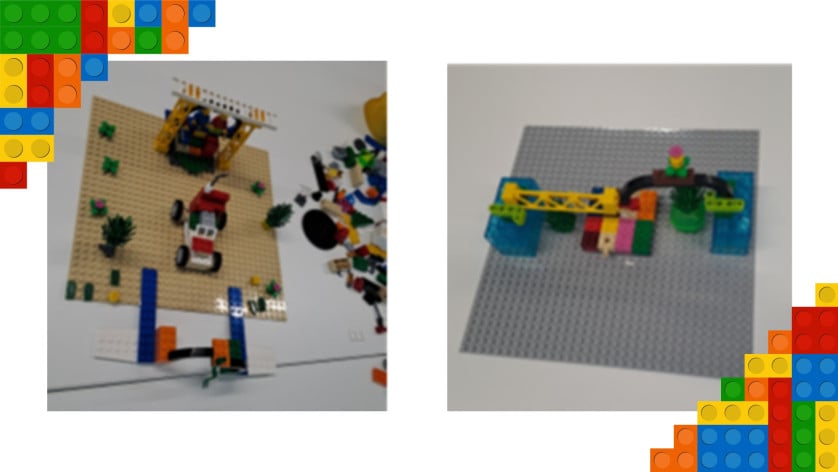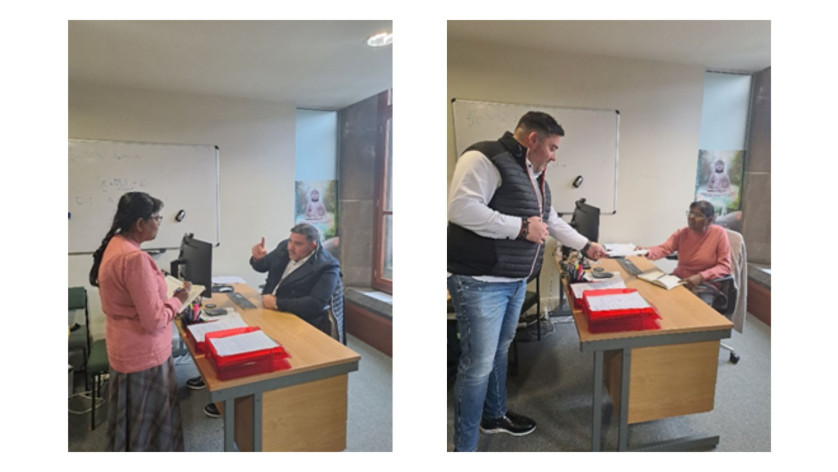
Chartered ABS responds to the DfE’s technical consultation on the International Student Levy
The Chartered ABS has submitted its response to the Department for Education’s technical consultation on the International Student Levy.
- Home
- / Insights
- / Knowledge sharing
- / Inclusive Leadership in business schools
Inclusive Leadership in business schools

Authors

Dr Geethanjali Selvaretnam
Senior Lecturer, Adam Smith Business School, University of Glasgow
“Inclusive Leadership: Behaviours that collectively facilitate all group members' perceptions of belongingness to the work group and that encourage group members contributing their uniqueness to achieving positive group outcomes.” - Randel et al. (2018, p. 195)
Recognising the growing interest and expectations for inclusive leadership, the Equity, Diversity and Inclusion (EDI) committee of the Chartered ABS ran a workshop on 12 October 2023 under the heading Inclusive Leadership in Business Schools: Creating Environments for Diverse Communities to Flourish.
Attended by 16 people from 12 institutions, this one-day event was held in person so we could have breaks between sessions to facilitate informal discussions, in-depth conversations to reinforce the learning from the sessions, and the exchanges of resources etc. The workshop was split into four distinct sessions.
1. Lego-Serious Play (LSP) – an inclusive activity about inclusive leadership
The first session was led by Professor Janice Allan, along with Professor Vish Maheshwari and Dr Angela Byrne from Salford Business School. This was an ice breaker activity using Lego Serious Play (LSP), adopting the process explained in Figure 1. LSP is designed to foster creative thinking and problem solving, and to encourage participants to think differently and collaboratively. For that reason, the Committee felt that it would be an appropriate way to launch the day.
Figure 1: LSP Process (Source: Lego Serious Play)

We were divided into two groups, each sitting around a large table with a bag of Lego pieces. First, we were asked to individually use just 5 pieces of Lego and build a metaphor of inclusivity. In our groups, each person explained their creation to ensure that every voice was heard. Then, the group had to build something collectively, incorporating the individual models, to represent what inclusivity meant to us as a group. One person in each group explained the story behind the creation, paving the way for reflection and discussion. The Lego creations of the two groups are shown in Figure 2, and we encourage you to reflect on what it tells you about inclusive leadership. Note, for example, how both incorporate bridges and ladders.
Figure 2: Lego creations by the groups

It was a thoroughly engaging and enjoyable activity, incorporating creativity whilst reflecting on the concept of inclusivity and listening to others. The creative juices sprang into action when we had to put our individual creations together to create a bigger model that gave a meaningful message. Some of us have been inspired to get trained in LSP, which could prove useful in our teaching and leadership roles.
2. Inclusive leadership: theory and practice
After the morning tea break, Professor Kathlyn Wilson (Hertfordshire Business School and Chair of the Race Equality Action Group) enlightened us on the existing academic literature about inclusive leadership (see references below). These are well worth reading, both to learn about inclusive leadership for practice as well as to embark upon much needed research in this area.
We realised there was a lack of research on the indicators of inclusive leadership and how inclusive leadership is rewarded. Kathlyn and co-author are currently carrying out an in-depth analysis with interviews about inclusive leadership in business schools. She is currently co-authoring a chapter in a book by the Society for Industrial and Organizational Psychology, which looks at the changing leadership landscapes and developing the next generation of leaders.
Kathlyn was followed by Professor Toni Hilton, Dean of the School of Business and Law, University of Brighton, who shared her experiences of striving to be an inclusive leader as the head of a business school. Professor Hilton outlined some of the challenges she faced, and how she overcame these. By being aware of privilege and inequality, Toni was able to put being an inclusive leader at the heart of everything she did. The importance of being visible, responsible and accountable for decisions that impact individuals was reiterated throughout Professor Hilton’s talk; she acknowledged that a good leader must be a role model who is serious about achieving goals whilst remaining flexible.
The good leader is like the conductor of an orchestra; allocating clear roles to each member according to their strengths, guides them through the performance, enables the production of good music together and celebrates the achievements as a group. An inclusive leader creates the environment for individuals to thrive and contribute their talents to team goals.
3. Inclusive Leadership in action
After lunch, we had two presentations about inclusive leadership in action, with some activities that can be used in practice. First, Ian Roberts, shared his experience as the Head of Kingston Business School. Since we were a small group, he chose to sit with us to share his experience, inviting us to ask questions and make comments, actively demonstrating the idea of being an approachable leader. Ian reiterated the importance of appreciating diversity as an asset, and creating an environment where people feel a sense of belonging. A practical activity he introduced to us which can be used in our leadership practice, was to physically move to another chair to see from that person’s perspective. This is an exercise in ‘being in the other person’s shoes’.
Figure 3: Changing Positions (photo by author)

Ian shared some examples that demonstrate the importance of being aware of the difficulties faced by those from lower income families and their limited exposure to possible opportunities, and why leadership teams should strive to find ways to support staff to achieve their potential. Finally, we engaged in some discussion which challenged the idea of ‘heroic’ leadership and why we should remain mindful that leaders are also human; there was a general acknowledgement of the additional demands of inclusive leadership.
The second speaker in this session was Maria Hussain (Leeds University Business School) who spoke about her research project which focussed on the attitudes of employers and students towards cultural diversity (Hussain, 2022). An important aspect in Maria’s talk was being aware of one’s own level of privilege and being conscious of others’ which was demonstrated through a privilege walk. This can be done physically with everyone moving as in this video by Peter (2018) or anonymously by marking on a piece of paper (which is what we did at the workshop).
As leaders, we should regularly check our knowledge, attitudes and awareness; Maria drew our attention to the importance of intercultural competence and communication in being an inclusive leader. She provided examples from a large healthcare provider that feature in her research findings.
4. Breakout discussion groups
The final session was led by Mark Clark (Sussex Business School),which comprised of discussions in three small groups, aided by some guiding questions. We posted responses to a Padlet which was projected on the screen for reflection and discussion; we found this to be an efficient and effective way to conduct such a session. This was an informal discussion with limited time, but with a view to facilitate important discussions well beyond the workshop. The main points that emerged from the discussions are summarised below.
5. Conclusion
Finally, the participants brainstormed what further action can be taken, individually and collectively, to become more inclusive leaders. Following this workshop, we will continue to explore this theme at the Annual Conference in November 2024 with some sessions on inclusive leadership. We look forward to exciting times when business schools practice and inspire inclusive leadership!
